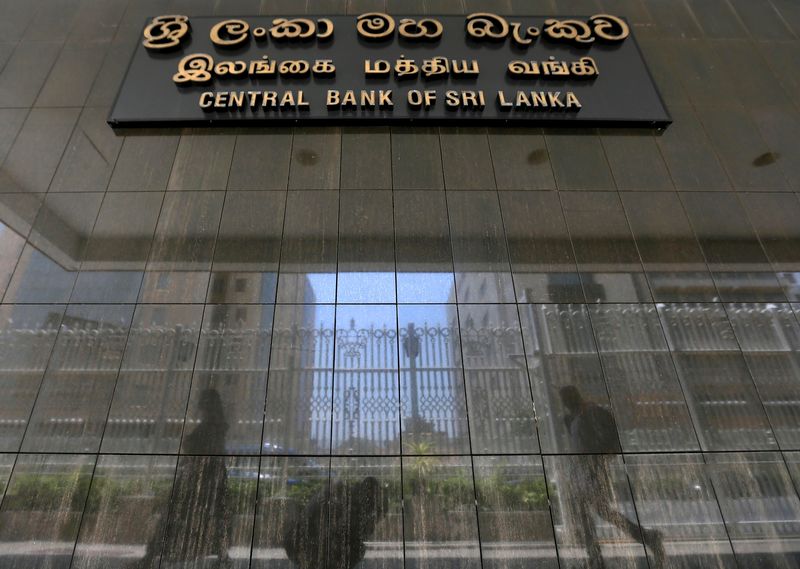By Uditha Jayasinghe
COLOMBO (Reuters) -Sri Lanka's central bank cut interest rates by 25 basis points on Wednesday in a surprise decision aimed at spurring economic recovery following the country's worst financial crisis in decades.
The decision was made "in the absence of significant inflationary pressure," said the bank, which expects inflation to remain below its 5% target in the medium term.
The Central Bank of Sri Lanka (CBSL) cut the Standing Deposit Facility Rate to 8.25% and the Standing Lending Facility Rate to 9.25%.
Nine out of 14 economists and analysts polled by Reuters had predicted the bank would keep rates unchanged to hedge against political uncertainty. The others in the poll had forecast cuts.
"We expect inflation to remain below the 5% target for the next six months and could even be lower than what we have projected. We hope this rate cut will help improve growth," CBSL Chief P. Weerasinghe said at a press conference after the decision.
Sri Lanka, which defaulted on its foreign debt in May 2022, is also making "good progress" on finalising a $12.5 billion debt restructuring with bondholders, he said.
The central bank cut rates by 50 basis points in March in an easing cycle that has seen rates drop by 7.25 percentage points since June 2023, partially reversing 10.50 percentage points of increases since April 2022 when the island was battling a collapse in the economy.
3% GROWTH EXPECTED THIS YEAR
Sri Lanka's economy is expected to grow 3% in 2024, helped by a $2.9 billion IMF lending programme. The economy shrank 7.3% in 2022 and 2.3% last year.
Inflation dropped to 1.7% in June, a sharp contrast to 70% in September 2022 at the height of the financial crisis.
Sri Lanka cut power tariffs by 22.5% and reduced fuel and cooking gas prices this month to reduce living costs, which analysts said would also dovetail with CBSL's growth push.
"They have used the technical situation of inflation remaining below the bottom range of the inflation target, which is now reinforced by the electricity tariff cut, to cut rates," said Thilina Panduwawala, head of research at Frontier Research.
"In addition, they hope the cut will help reinforce the pick up in private sector credit growth seen in May and June."
However, the rate cut is unlikely to propel growth beyond the projected 3%, with markets likely to keep a close eye on Sri Lanka's upcoming presidential elections, likely before mid-October.

"The market will continue to be affected by the uncertainty caused by what appears to be a three-horse race for the presidential election," Panduwawala said.
The vote will likely to be a contest between President Ranil Wickremesinghe, opposition leader Sajith Premadasa and Marxist parliamentarian Anura Kumara Dissanayake.